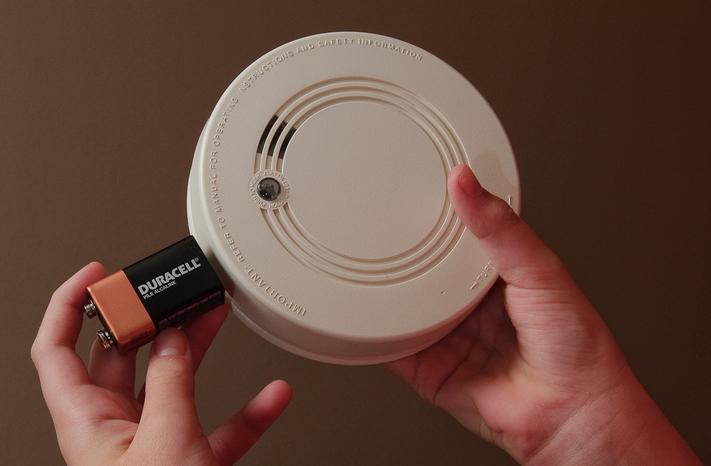In anticipation of daylight savings time ending in the early morning hours of November 2nd Marylanders to “Change Your Clock – Change Your Battery” in both smoke alarms and carbon monoxide (CO) detectors in their homes. Recognizing that working smoke alarms and CO detectors double a family’s chance of surviving a home fire and/or an unsafe carbon monoxide level, the State Fire Marshal says Daylight Savings Time is a great opportunity for families to change the batteries. “This simple procedure can help us avoid tragedies in the place we should feel the most secure – our homes.”
A new law became effective on July 1, 2013 involving “battery only” smoke alarms used in Maryland residential properties. When these “battery only” smoke alarms have reached their 10-year life span, they need to be replaced with new long-life sealed lithium battery smoke alarms with silence/hush button features. The silence/hush button feature temporarily disables the alarm so the occupant can ventilate the space from mild smoke conditions typically created during some cooking operations. The use of these alarms eliminates the need to replace the batteries during the 10 year life of the alarm.
The new law also requires homeowners to ensure they have a smoke alarm installed on each floor and outside each sleeping area, per National Fire Protection Association (NFPA) recommendations. It is recommended to install smoke alarms inside each bedroom as well. If your property is protected with 120 volt electric smoke alarms, they also should be replaced every 10 years with new 120 volt smoke alarms w/ battery back-up to ensure proper and timely operation in the event of a fire.
Along with working smoke alarms and CO detectors, home escape plans are another way Marylanders can avoid injury or death in their homes. By identifying at least two different escape routes, families can practice the plan together – before an emergency strikes. Practicing the plan helps educate younger children to the danger of hazardous situations and the importance of recognizing that the sound of a smoke alarm or CO detector signals a potential hazard in the home. “Changing the battery in your smoke alarms and CO detectors, along with developing and practicing a home escape plan, are three of the best ways to protect your loved ones and yourself from fire and carbon monoxide poisoning,” stated Fire Marshal Geraci. These life saving electronic devices have a life expectancy of ten years for smoke alarms and seven years for CO detectors. Please replace the units at these intervals to ensure optimal performance in the event an incident involving fire or a carbon monoxide leak was to
Please observe the overhead electronic signs as you travel throughout the State this weekend. The Office of the State Fire Marshal and all Marylanders thank the Maryland Department of Transportation and the State Highway Administration for assisting to spread the word about this life saving reminder.



Write a Letter to the Editor on this Article
We encourage readers to offer their point of view on this article by submitting the following form. Editing is sometimes necessary and is done at the discretion of the editorial staff.